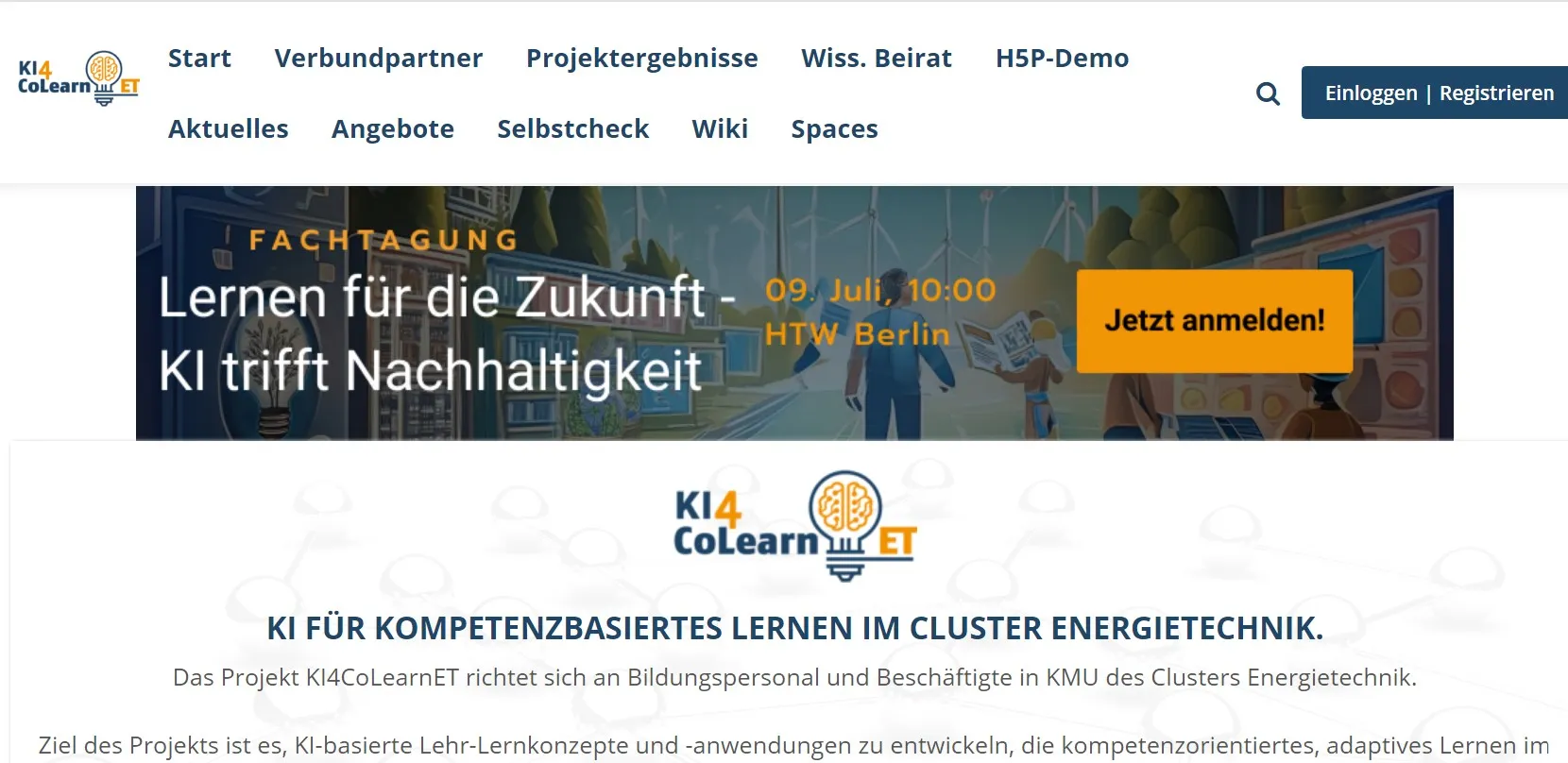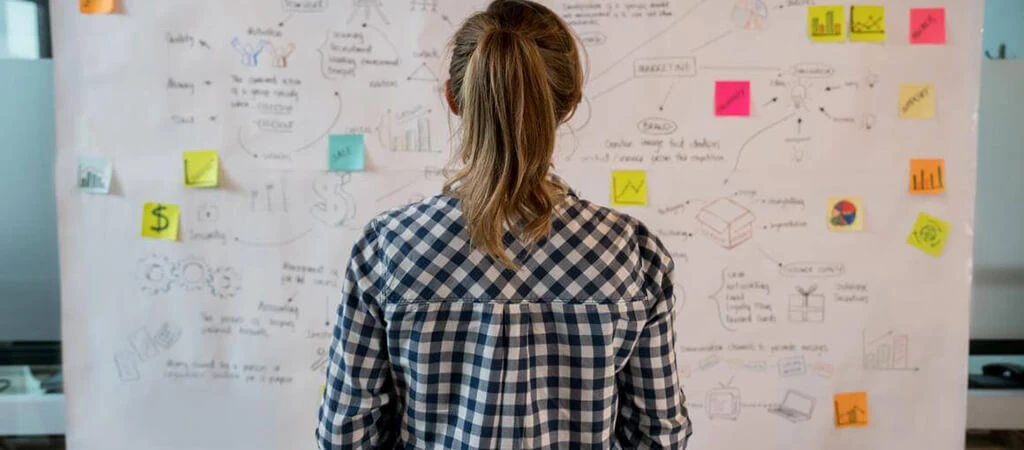
Single Cell Sequencing – die Revolution in der Life Science und Bioinformatik. Sie transformiert Forschungsfelder wie Onkologie, Immunologie, Pharmakologie und...
Als qualifizierte medizinische Fachangestellte entlasten Sie Arbeitsmediziner*innen/Betriebsmediziner*innen durch die Übernahme delegationsfähiger ärztlicher Leistungen. Ob kompakt oder berufsbegleitend: Sie erhalten praxisbezogenes Wissen für Ihre berufliche Verantwortung.
Neue Berufsperspektiven erschließen, sich persönlich weiterentwickeln oder Wissen auffrischen: Ob Weiterbildung, Webseminar, in Vollzeit oder berufsbegleitend – hier finden Sie zu Arbeitsschutz, Brandschutz und Arbeitsmedizin das passende Bildungsangebot.
Weiterführende Auffrischungsseminare sichern Ihre Anerkennung als Fachkraft für Arbeitssicherheit oder als Brandschutzbeauftragte*r. Wählen Sie die Bildungsangebote, die Sie beruflich voranbringen.
Als Energieberater*in für Wohngebäude, Nichtwohngebäude oder Denkmalschutz beraten Sie zu energieoptimierten Baulösungen. Nutzen Sie die zertifizierte CQ-Ausbildung, um sich in die Energieeffizienz-Expertenliste einzutragen oder die dena-Listenverlängerung zu beantragen.
Mit der dena-Listung profitieren Sie von der Bundesförderung für effiziente Gebäude (BEG) in den Bereichen Wohngebäude, Nichtwohngebäude und Einzelmaßnahmen (BAFA, KfW). Durch eine Listung bei der WTA (Wissenschaftlich-Technische Arbeitsgemeinschaft für Bauwerkserhaltung und Denkmalpflege GmbH) können Sie zusätzlich von spezifischen Fachkenntnissen und Netzwerkvorteilen im Bereich der Denkmalpflege und -sanierung profitieren. Unsere Kurse sind im dena-Fortbildungskalender gelistet.
Lernen Sie wissenschaftliche Daten effizient zu analysieren: Beste Berufsperspektiven in Forschung, Entwicklung und Produktion warten auf Sie bundesweit und in der Hauptstadtregion.
Berlin-Brandenburg gehört mit einer Vielzahl von Biotechnologie- und Pharma-Unternehmen, Forschungseinrichtungen und sechs Biotechnologieparks zu den führenden Biotechnologie-Standorten. Durch unser dichtes, deutschlandweites Kooperationsnetzwerk und den hohen Praxisanteil der Weiterbildungen bieten sich Ihnen beste Beschäftigungsperspektiven in Forschungseinrichtungen und Laboren.
Manchmal braucht es neue Impulse oder eine andere Perspektive, um berufliche und persönliche Ziele zu erreichen. CQ-Coaching gibt Orientierung, stärkt Ihre Potentiale und begleitet Sie bei der Jobsuche oder während der Einarbeitung in einem neuen Job.
Sie sind neu in Deutschland? Dann hilft Ihnen Coaching eine passende Arbeit zu finden und Deutsch als Fremdsprache im Beruf zu meistern. Nutzen Sie das CQ-Coaching auch für Ihre digitale Transformation, um sich im Job gut zu positionieren. CQ unterstützt Sie ebenso auf Ihrem Weg in die Freiberuflichkeit oder Selbständigkeit.
Als qualifizierte medizinische Fachangestellte entlasten Sie Arbeitsmediziner*innen/Betriebsmediziner*innen durch die Übernahme delegationsfähiger ärztlicher Leistungen. Ob kompakt oder berufsbegleitend: Sie erhalten praxisbezogenes Wissen für Ihre berufliche Verantwortung.
Neue Berufsperspektiven erschließen, sich persönlich weiterentwickeln oder Wissen auffrischen: Ob Weiterbildung, Webseminar, in Vollzeit oder berufsbegleitend – hier finden Sie zu Arbeitsschutz, Brandschutz und Arbeitsmedizin das passende Bildungsangebot.
Weiterführende Auffrischungsseminare sichern Ihre Anerkennung als Fachkraft für Arbeitssicherheit oder als Brandschutzbeauftragte*r. Wählen Sie die Bildungsangebote, die Sie beruflich voranbringen.
Als Energieberater*in für Wohngebäude, Nichtwohngebäude oder Denkmalschutz beraten Sie zu energieoptimierten Baulösungen. Nutzen Sie die zertifizierte CQ-Ausbildung, um sich in die Energieeffizienz-Expertenliste einzutragen oder die dena-Listenverlängerung zu beantragen.
Mit der dena-Listung profitieren Sie von der Bundesförderung für effiziente Gebäude (BEG) in den Bereichen Wohngebäude, Nichtwohngebäude und Einzelmaßnahmen (BAFA, KfW). Durch eine Listung bei der WTA (Wissenschaftlich-Technische Arbeitsgemeinschaft für Bauwerkserhaltung und Denkmalpflege GmbH) können Sie zusätzlich von spezifischen Fachkenntnissen und Netzwerkvorteilen im Bereich der Denkmalpflege und -sanierung profitieren. Unsere Kurse sind im dena-Fortbildungskalender gelistet.
Lernen Sie wissenschaftliche Daten effizient zu analysieren: Beste Berufsperspektiven in Forschung, Entwicklung und Produktion warten auf Sie bundesweit und in der Hauptstadtregion.
Berlin-Brandenburg gehört mit einer Vielzahl von Biotechnologie- und Pharma-Unternehmen, Forschungseinrichtungen und sechs Biotechnologieparks zu den führenden Biotechnologie-Standorten. Durch unser dichtes, deutschlandweites Kooperationsnetzwerk und den hohen Praxisanteil der Weiterbildungen bieten sich Ihnen beste Beschäftigungsperspektiven in Forschungseinrichtungen und Laboren.
Manchmal braucht es neue Impulse oder eine andere Perspektive, um berufliche und persönliche Ziele zu erreichen. CQ-Coaching gibt Orientierung, stärkt Ihre Potentiale und begleitet Sie bei der Jobsuche oder während der Einarbeitung in einem neuen Job.
Sie sind neu in Deutschland? Dann hilft Ihnen Coaching eine passende Arbeit zu finden und Deutsch als Fremdsprache im Beruf zu meistern. Nutzen Sie das CQ-Coaching auch für Ihre digitale Transformation, um sich im Job gut zu positionieren. CQ unterstützt Sie ebenso auf Ihrem Weg in die Freiberuflichkeit oder Selbständigkeit.

Arbeitssicherheit und Gesundheitsschutz haben als anspruchsvolle Führungsaufgabe in Unternehmen und Institutionen einen hohen Stellenwert. Arbeitgeber sind verpflichtet, entsprechend ausgebildete Fachkräfte firmenintern zu bestellen oder einen Dienstleistenden zu beauftragen.
Sie sind bereits Fachkraft für Arbeitssicherheit? Dann sind für Sie unsere Seminare zur Auffrischung oder Zusatzqualifikationen, z.B. im Brandschutz oder als Sicherheits- und Gesundheitsschutzkoordinator*in, von Vorteil. Ebenso umgekehrt: Mit der entsprechenden Qualifikation und Berufserfahrung können Sie auch als Brandschutzbeauftragter oder SiGeKo Fachkraft für Arbeitssicherheit werden.
Mit den Weiterbildungen eröffnen sich Ihnen neue berufliche Perspektiven und in Kombination können Sie die unterschiedlichen Fachkompetenzen gut miteinander verknüpfen.

Single Cell Sequencing – die Revolution in der Life Science und Bioinformatik. Sie transformiert Forschungsfelder wie Onkologie, Immunologie, Pharmakologie und...

Umweltschutz und Digitalisierung schreiten bei CQ stetig voran. In diesem Interview erzählt die Geschäftsführerin, wie das Unternehmen damit umgeht.

Umweltschutz und Digitalisierung schreiten bei CQ stetig voran. In diesem Interview erzählt die Geschäftsführerin, wie das Unternehmen damit umgeht.

Das Verbundprojekt KI4CoLearnET erweitert die im Vorgängerprojekt CoLearnET gestartete Entwicklung digitaler Lernmedien zu Themen des Clusters Energietechnik durch den innovativen...

Digitalisierung und immer modernere Technik bringen eine Menge Vorteile mit sich. Undenkbar wäre es, diese Entwicklung aufzuhalten und damit die...

Gesundheitsförderung bezeichnet nach Definition der Weltgesundheitsorganisation (WHO) „ein[en] Prozess, der den Menschen mehr Entscheidungen über ihre Gesundheit ermöglicht und dadurch...

Drei Jahrzehnte CQ Beratung+Bildung GmbH. Das sind drei Jahrzehnte gelebter Geschichte, tausende erfolgreich aus- und weitergebildete Fachkräfte und die stete...

Biotechnologie im Aufwind - Biologische, Chemische, Pharmazeutische und Medizinische Laborassistenzen profitieren von vielseitigen Möglichkeiten in der Biotechnologie Branche in Deutschland....

Stellen Sie sich vor Sie werden gefragt: „Was ist der wichtigste Faktor für Unternehmenserfolg?“ Das ist keine einfache Frage, denn...

Was verstehen wir unter Digitalisierung? Der Begriff beschreibt die Veränderung von Prozessen und Ereignissen mithilfe von Technik, genauer gesagt digitalen...

Was ist Coaching und wann ist Coaching erfolgreich? Der Begriff Coaching dient als Sammelbegriff für unterschiedliche Beratungsmethoden und ist in...

Wissen ist so allgegenwärtig und so schnell erreichbar wie nie zuvor in der Menschheitsgeschichte. Mit einem Smartphone und einer Internet-Verbindung...

Egal ob Sie ein erfolgreicher CEO oder ein*e Student*in am Anfang der Karriere sind - ohne richtige Kommunikation funktioniert gar...

Solange Du Dich erinnern kannst, wusstest Du immer genau, was Du als Nächstes tun würdest. Man musste ja auch nicht...

Der Energie-Sektor in Deutschland ist schon seit Jahren im starken Aufwind. Neben zahlreichen Auswirkungen im Strombereich ist von der Energiewende...
Datenschutzhinweis – GoogleMaps
Diese Webseite verwendet Google Maps, um Kartenmaterial einzubinden. Bitte beachten Sie, dass hierbei persönliche Daten durch Google erfasst und gesammelt werden können. Über die Schaltfläche Externe Inhalte nachladen stimmen Sie aktiv zu, das diese vom Google-Server geladen wird. Weitere Informationen finden sie hier.
CQ Beratung+Bildung GmbH, c/o ASUC GmbH
Am Herrschaftsweiher 35
67071 Ludwigshafen am Rhein
Mo – Do: 08:00 – 12:00 Uhr, 13:00 – 16:00 Uhr
Fr: 08:00 – 12:00 Uhr, 12:30 – 15:00 Uhr
Telefon: +49 621 59570190
Datenschutzhinweis – GoogleMaps
Diese Webseite verwendet Google Maps, um Kartenmaterial einzubinden. Bitte beachten Sie, dass hierbei persönliche Daten durch Google erfasst und gesammelt werden können. Über die Schaltfläche Externe Inhalte nachladen stimmen Sie aktiv zu, das diese vom Google-Server geladen wird. Weitere Informationen finden sie hier.
Strelitzer Straße 60
10115 Berlin
Aufgang C, Etage 2
Mo – Fr: 08:00 – 16:00
Phone: +49 30 4215390
E-Mail: info@cq-bildung.de
Die Zahlung per Kreditkarte/Debitkarte erfolgt über Zahlungsanbieter Stripe. Mögliche Optionen sind VISA und Mastercard.
Die Zahlung per PayPal erfolgt über Zahlungsanbieter PayPal.
Die Zahlung auf Rechnung per Banküberweisung erfolgt innerhalb von 14 Tagen nach Erhalt der Rechnung unter Angabe der Rechnungsnummer als Verwendungszweck.
Bei Abschluss eines Kursmoduls mit einem Startzeitpunkt, welcher das 14-tägige Rücktrittsrecht unterschreitet (weniger als 14 Tage), erkläre ich mich damit einverstanden, auf das gesetzliche Widerrufsrecht zu verzichten, um an der Veranstaltung teilnehmen zu können. Mit dem Absenden des Formulars erklären Sie sich mit unseren AGB und dem Widerrufsrecht einverstanden.
Privacy policy – GoogleMaps
This website uses Google Maps to integrate map material. Please note that personal data may be recorded and collected by Google. By clicking the Externe Inhalte nachladen button, you actively agree to this being loaded from the Google server. Further information can be found here.
Strelitzer Straße 60
10115 Berlin
Staircase C, Floor 2
Mo – Fr: 08:00 am – 04:00 pm
Telefon: +49 30 4215390
E-Mail: info@cq-bildung.de
Datenschutzhinweis – GoogleMaps
Diese Webseite verwendet Google Maps, um Kartenmaterial einzubinden. Bitte beachten Sie, dass hierbei persönliche Daten durch Google erfasst und gesammelt werden können. Über die Schaltfläche Externe Inhalte nachladen stimmen Sie aktiv zu, das diese vom Google-Server geladen wird. Weitere Informationen finden sie hier.
CQ Beratung+Bildung GmbH, c/o ASUC GmbH
Am Herrschaftsweiher 35
67071 Ludwigshafen am Rhein
Mo – Do: 08:00 – 12:00 Uhr, 13:00 – 16:00 Uhr
Fr: 08:00 – 12:00 Uhr, 12:30 – 15:00 Uhr
Telefon: +49 621 59570190
Datenschutzhinweis – GoogleMaps
Diese Webseite verwendet Google Maps, um Kartenmaterial einzubinden. Bitte beachten Sie, dass hierbei persönliche Daten durch Google erfasst und gesammelt werden können. Über die Schaltfläche Externe Inhalte nachladen stimmen Sie aktiv zu, das diese vom Google-Server geladen wird. Weitere Informationen finden sie hier.
Strelitzer Straße 60
10115 Berlin
Aufgang C, Etage 2
Mo – Fr: 08:00 – 16:00
Phone: +49 30 4215390
E-Mail: info@cq-bildung.de